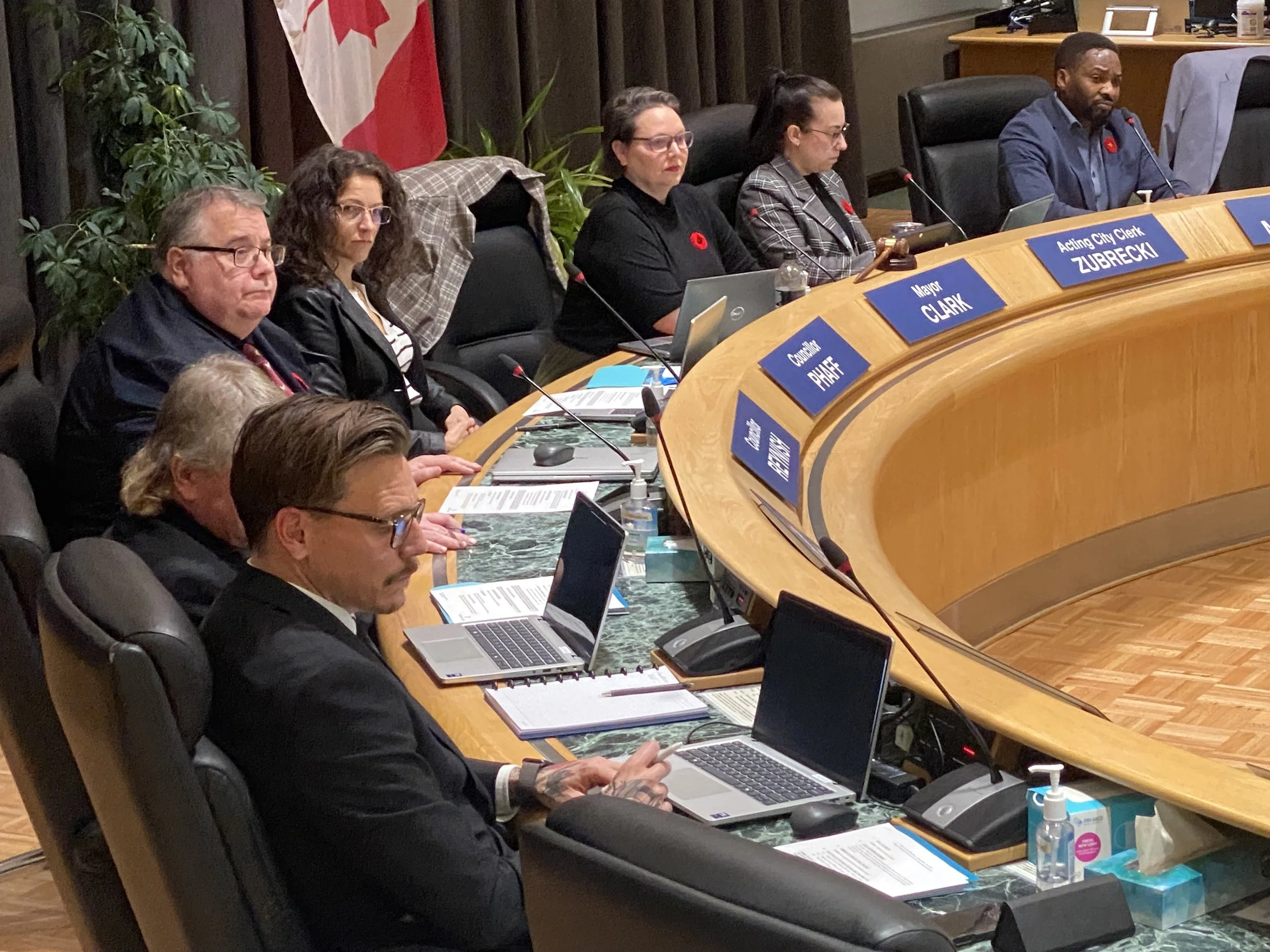City Looking At Two More Years of 5.6% Tax Increases
Elections promises came face to face with financial realities Monday with city council hearing administrators explain a budget gap will require 5.6 per cent annual property tax increases through 2028 to be able to close.
And even with that gap closed, council heard city reserves will continue to be drawn down.
“The reserve balance – even with our (budget gap reduction) plan – we’ll see a decline over the next 10 years of approximately $180 million,” Jaret Dickie, manager of corporate planning, told council. “We’re raising awareness so council goes into this term eyes wide open as far as what are some spending limitations and what is the big, long-term financial picture.”
Council heard the budget gap, caused by the annual requirement to draw from reserves to make up for the deficit in tax funded expenditures, grew to nearly $18 million in 2022 but is anticipated to be halved for 2025. However, that budget gap will require two additional years of annual 5.6 per cent property tax increases to fully close by 2028.
And that situation doesn’t consider potentially large capital and associated operating expenditures in relation to a new multi-million-dollar southside aquatic facility, expanded playing fields in the north end or new solar farm. Nor does that forecast include any other possible expense ranging from a long sought after airport runway expansion or resurrection of a funding request from the Medicine Hat Exhibition & Stampede for a new grandstand.
Coun. Stu Young told his fellow councillors he expects they’ll likely be people with something to say about the situation.
“Our two options are we increase revenue or decrease expenses. Ultimately those are the two options in front of us. And that’s already with an increase of 5.6 per cent every year,” he said. “It’ll be good to that discussion on how we’re going to manage that.”
In response to a question by Coun. Bill Cocks as to where the pressure on reserves is coming from if the budget gap is eliminated by 2028, Dickie pointed to continue capital expenditures. Specifically, annually capital expenditures of between $25- to $50 million for the next several years.
“For our municipal budget gap to close by the (2028) target, I feel that is perhaps an unreasonable expectation,” said Mayor Linnsie Clark during Monday’s council meeting while citing some of the upcoming – yet unaccounted for – city expenditures.
Even if the budget gap is closed by 2028, energy revenues are projected to fall drastically from their recent 2023 peak which will stymy the ability to inject new funds into city reserves. Additionally, current budget projections put the city at or near its debt limit by 2032.


